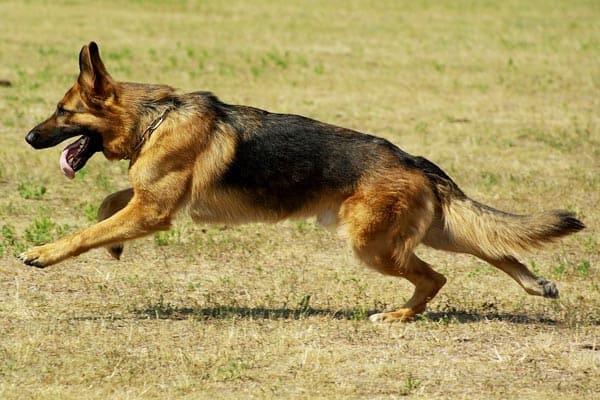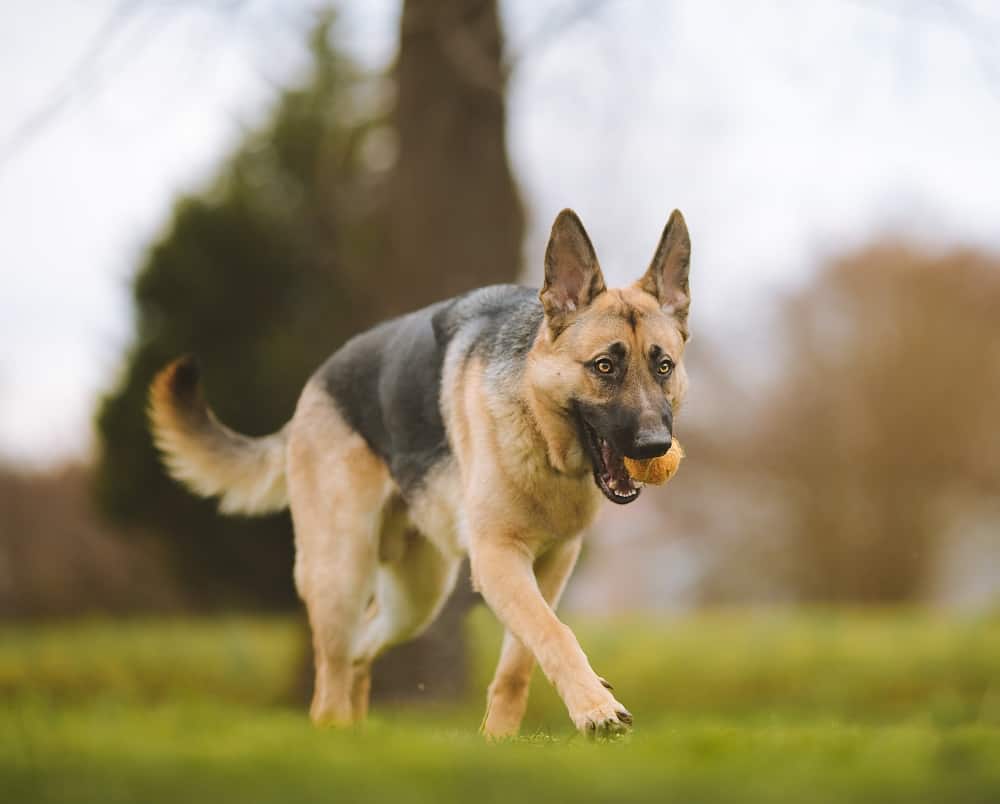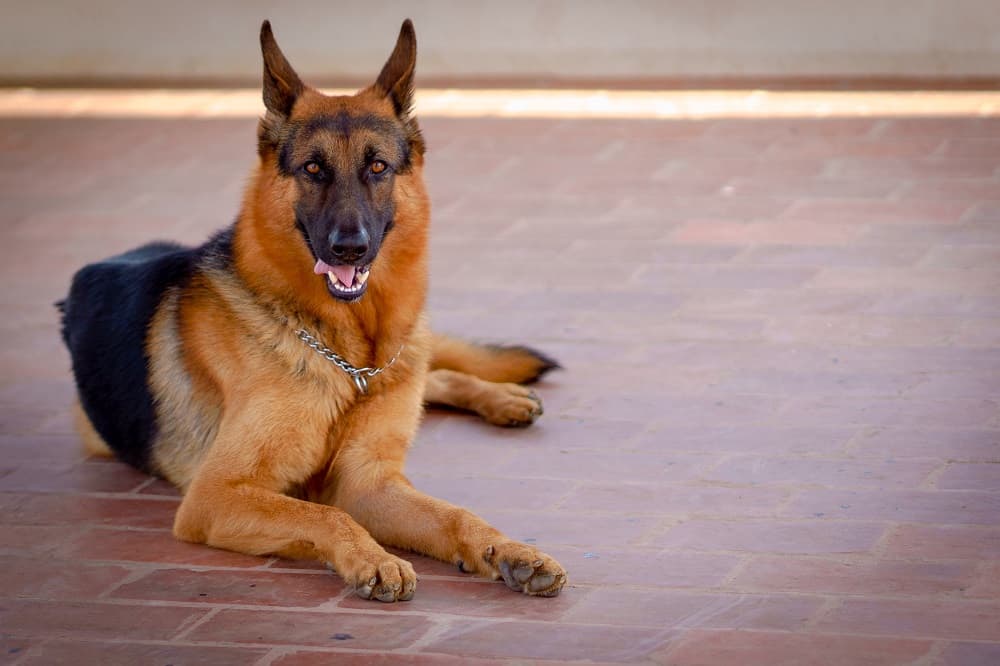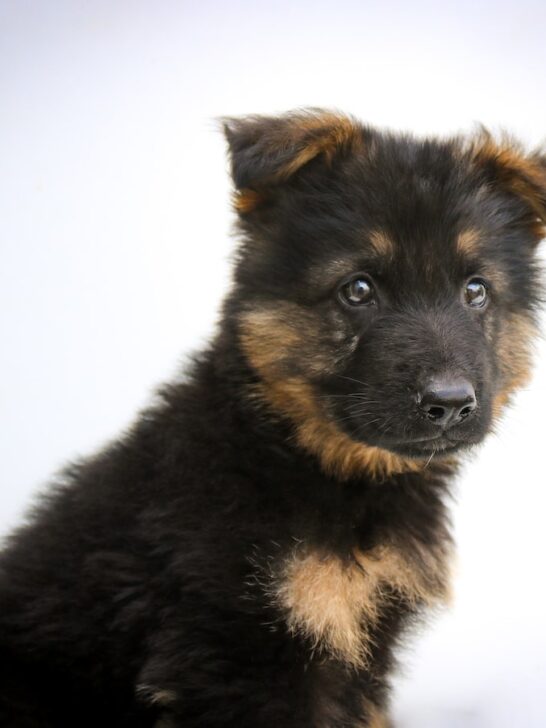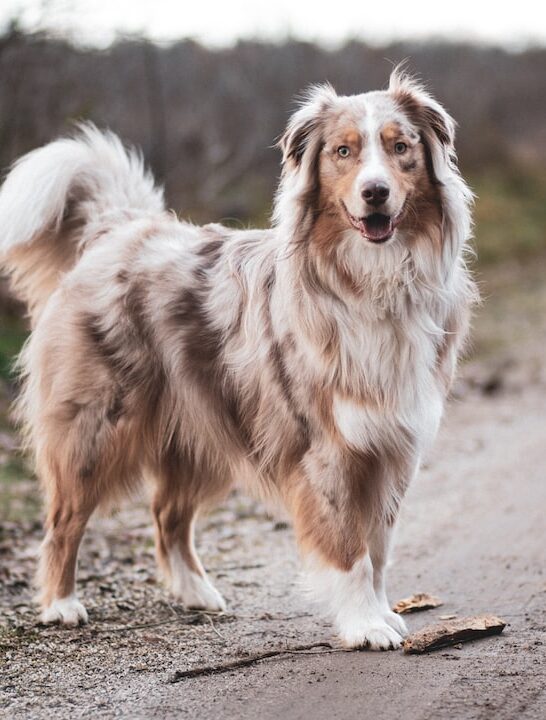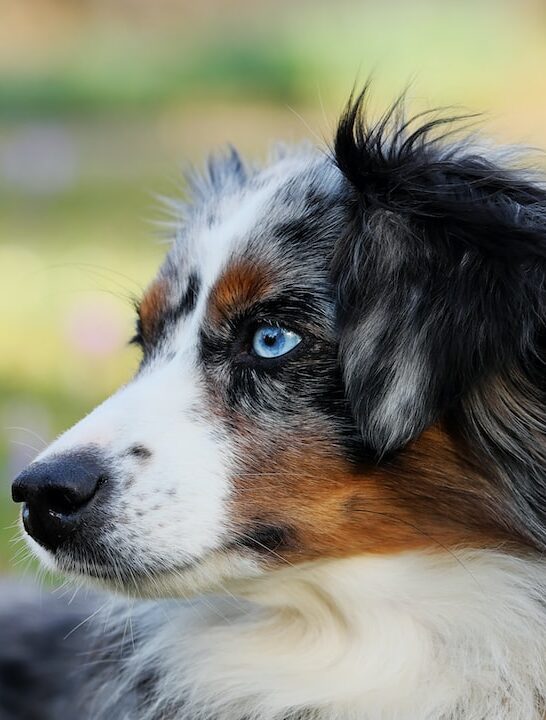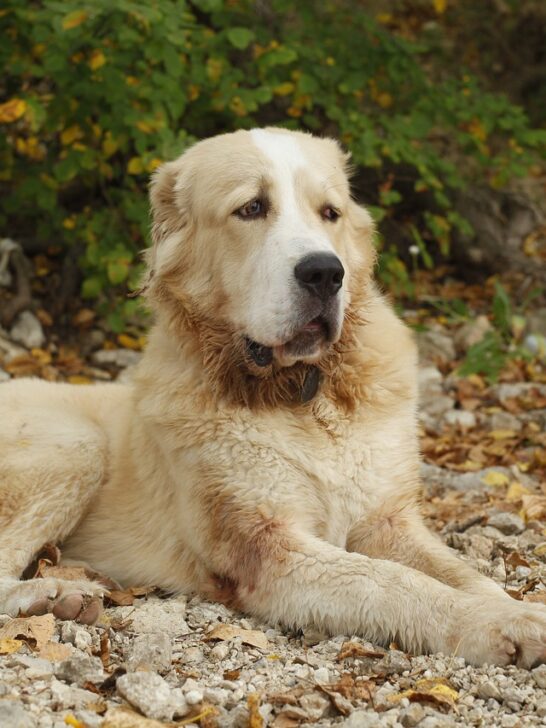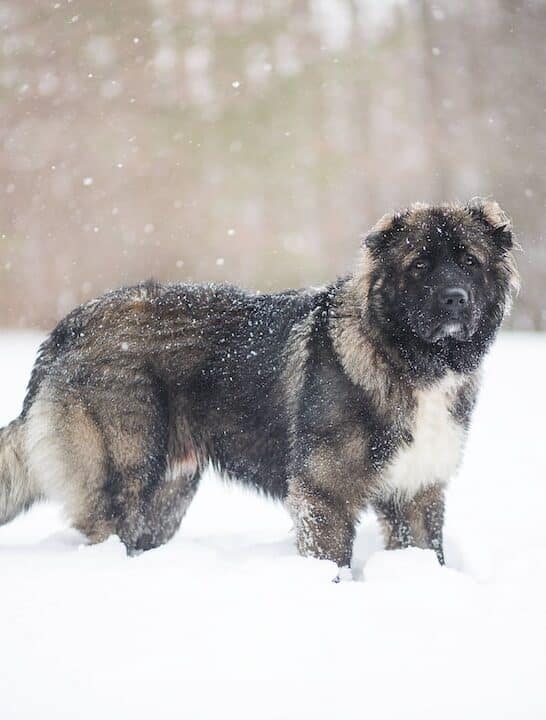Are German Shepherds High Energy? The Ideal Dog For Amazing Energy
It should come as no surprise to anyone who follows Shepherd breeds that the German Shepherd is a high energy breed.
Unlike other dog breeds that enjoy general playtime, the GSD prefers specific jobs.
In fact, using treats might not even be necessary when training some German Shepherds.
Instead, many GSDs love to work and obey commands in exchange for games of tug-o-war or fetch.
Coupled with this its herding background, the German Shepherd is the epitome of a high energy dog breed.
German Shepherds: The Definition Of A High-Energy Breed
Life with a German Shepherd as a member of your household is both a joy and a challenge.
These beautiful dogs are high-energy, and intelligent animals that crave working environments.
This breed is known for its industrious nature and persistent activity demands.
Bred as working dogs, these strongly built, yet graceful canines are second to none in terms of working abilities.
They serve as aids for the handicapped, and as police or military rescuers and scouts.
These animals exhibit outstanding loyalty, devotion, and courage to their owners, and human family members at home.
As extremely versatile canines, they have the ability to learn and excel at a multitude of different tasks.
Once well-trained, they seldom deviate from the task at hand, often over-achieving with energy to spare.
They frequently meet and even exceed the expectations and goals of their trainers.
In short, German Shepherds are very high-energy dogs with the ability to accomplish challenging tasks and goals.
Why Are German Shepherds So Energetic And Resourceful?
Most German Shepherd dogs seem to need continuous activity.
In fact, many seem to have an inexhaustible amount of energy, which is mainly due to the breeding history.
In 1891, at a dog show in Germany, Max Von Stephanitz found a newly bred dog named Hektor Linksrhein.
Max was amazed at the beauty, physical strength, endurance, and level of intelligence of this animal.
After purchasing the dog, he renamed his new pet Horand.
Max then bred Horand with other dogs displaying similar capabilities and qualities, which created the German Shepherd breed known today.
Since dogs of this breed had such impressive energy and strength, they were often used as herding dogs.
Research reveals that their ancestors ran in groups, or packs, to control wild animals.
Even today, German Shepherds are used on farms and ranches to herd, or control, cattle, sheep, and horses.
Any animals that stray from their herds, fields, or pastures are rounded-up or corralled by the GSDs.
If you have a home with a large backyard, your German Shepherd will definitely love it, since they have a great need and desire to run in open spaces.
They need much more strenuous exercise than a quiet stroll in the park.
As Ever-Active Dogs, This Breed Needs Attention And Praise
Like children, when these energetic animals perform tasks and activities well, they expect attention and praise.
If you deny them this show of approval, they may politely demand it!
According to Dogtime, they may continue to perform certain tasks or activities with hopes of attracting your attention.
If you fail to respond, your endearing pet may actually attempt to herd you into joining the performance and antics.
Thanks to their intelligence and sensitivity, German Shepherds quickly learn to distinguish acceptable indoor activities from outdoor play.
Yet when feeling restless or especially playful, they may start to run around inside your home.
This is most likely due to the history of this breed, and its long-term use for outdoor work. These dogs need to stay busy!
Although it can be difficult, the best solution is to ignore their crazy behavior.
Since German Shepherds crave attention and praise, they’ll soon realize they need to calm down in order to win your approval.
If you’re looking for natural ways to help calm your pet, German Shepherds respond well to aromatherapy.
Natural scents like lavender, mint, and chamomile will make your shepherd feel mellow and content. This will help remind them of time spent resting in nature.
Throughout the breed’s history, they have surely enjoyed moments of peace and relaxation in fields of grass, wild herbs, and flowers.
Even today, they enjoy outdoor rest after a strenuous session of herding other animals.
Are German Shepherds Good Family Pets?
If you are considering getting a dog as a new family pet, a German Shepherd can actually be ideal.
Although they can be somewhat over-active and rambunctious, these dogs like children and can bond rather quickly.
According to Animals.net, German Shepherds’ high energy reserves and quick, agile movements make them quite helpful as children’s outdoor playmates.
Very quickly, they can assume the role of devoted and watchful “nanny”.
If your active youngsters start to run toward the street in an effort to retrieve a ball during play, you can count on your shepherd to herd your children back to safety if they start to stray.
This acutely aware dog will rush to the rescue, gently but firmly redirecting the child back to safety.
Once the youngster is back in the safe, secure territory, your pet will most likely look for traffic.
If all is clear, your shepherd will probably go fetch the ball.
As part of the family, these loyal, sensitive dogs like taking part in everyday household activities and chores.
Your shepherd may show an interest in helping you straighten up the house, picking up items from the floor.
While you run the vacuum, your pet may follow along, checking the carpet and flooring for lingering dust or debris.
These dogs love to play with robot vacuums, herding them away from walls and open doorways.
How Important Is Getting Your Dog From an Expert Breeder?
It is essential to obtain your German Shepherd from an excellent breeder.
Especially if you have small children, you need to be sure that your new pet has been properly socialized.
The idea of choosing a puppy that can grow up as part of your family is great.
Yet you must ensure that you get your new pet from a responsible breeder with a top-tier reputation.
You can then feel confident in welcoming a young shepherd into your household.
Breeds like German Shepherds that come from harsh or careless breeders may not have had good socialization training.
These animals, although acutely intelligent and aware, may feel somewhat uneasy when around babies and young children.
Some may show signs of excessive nervousness or anxiety due to bad treatment or training practices.
In this case, your shepherd most likely needs additional training before interacting with your family.
Some people are automatically afraid of large, active dogs like German Shepherds.
Even though they may never have had any threatening or frightening interaction with this breed, some neighbors may be apprehensive as well.
The energetic habits of these dogs can seem scary or unsettling.
Yet when your shepherd is carefully bred, cared for, and trained, your friends and neighbors can feel safe and relaxed.
If training is done properly, your dog will soon be quite popular in the neighborhood!
German Shepherds Adjust To Different Owners and Climates
As bright and highly aware canines, German Shepherds can adjust to various types of owners.
They can also adapt to various climates since they are a strong and hearty breed.
They can thrive in both cold and hot temperatures if well-fed and exercised.
In hot or tropical climates, they do need access to plenty of shade, cool spaces, and water.
Wherever they live, these fascinating and lovable dogs need to spend much of their time outdoors.
Yet they do not like being left to themselves, even in outdoor areas where they can run freely.
When well-bred and trained, shepherds like socializing with other friendly dogs of various breeds.
If your neighbors own dogs too, your shepherd may seek them out when outdoors.
These versatile dogs are equally content in households with large, active families, and with quiet, older people or handicapped individuals.
Once these animals get acquainted with their owners, they can adjust very quickly to their humans’ needs.
Even in quiet homes without much activity, they learn to use their energy in helpful, non-disruptive ways.
As long as they can enjoy some outdoor time, they’ll be able to thrive.
What Health Conditions Are Common in German Shepherds?
German Shepherds often develop joint problems, including degenerative myelopathy (spinal cord weakness).
Shepherds may also experience dysplasia (abnormalities of joint sockets) of the elbow and hips.
Another very serious health problem, bloat, can occur in this breed. It causes the dog’s stomach to twist inside the chest cavity and if not treated, can be fatal.
Expert breeders use DNA testing to prevent these issues from becoming hereditary traits.
Experienced and reputable breeders will give written proof of testing for such health problems to new shepherd owners.
You can help prevent your German Shepherd from developing joint weakness by ensuring that your pet gets enough daily exercise.
Regular visits to a licensed veterinarian are also essential to your dog’s good health.
The vet can also test your shepherd for any potential allergies or autoimmune issues.
German Shepherds need a diet rich in proteins. Ideal dog foods for this breed contain duck, turkey, and chicken as well as sweet potatoes.
These foods are high in essential vitamins, minerals, carbohydrates, fats, and fatty acids. Your dog can also eat carrots, eggs, salmon, and peanut butter.
We also recommend consulting your veterinarian for expert advice about quantities and best feeding times.
This can help your beloved German Shepherd live a long, healthy, and happy life!
Check out this cool video on German Shepherd dog training!
The German Shepherd Is The Prototypical High Energy Dog
Hopefully you now have a better understanding of the reasons for the German Shepherd’s high energy levels, as well as ways to keep this from becoming an unwanted issue.
For everything German Shepherd related, feel free to continue exploring our website – thanks for reading!
























